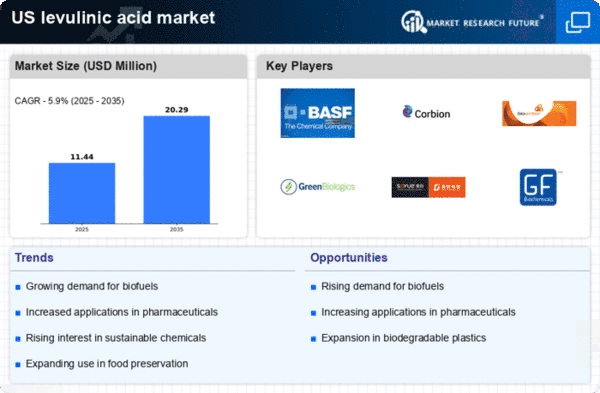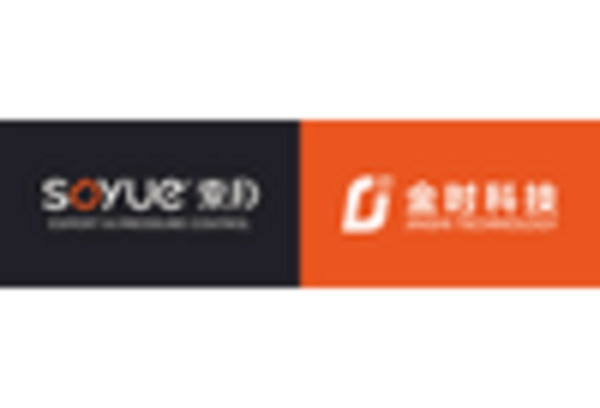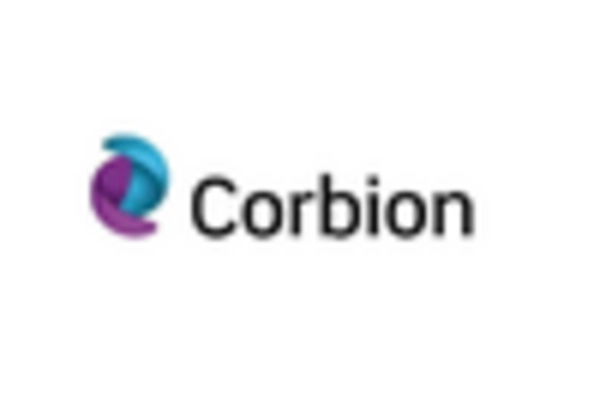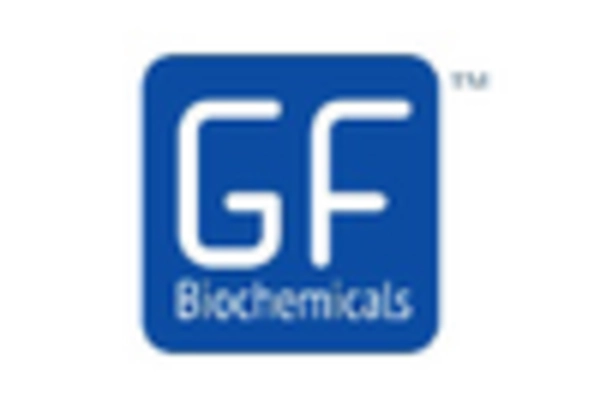The levulinic acid market exhibits a dynamic competitive landscape characterized by a blend of innovation, sustainability, and strategic partnerships. Key players such as BASF SE (DE), Corbion NV (NL), and BioAmber Inc (CA) are at the forefront, each adopting distinct strategies to enhance their market positioning. BASF SE (DE) focuses on innovation through the development of bio-based products, while Corbion NV (NL) emphasizes sustainability by integrating renewable resources into its production processes. BioAmber Inc (CA) appears to be leveraging strategic partnerships to expand its market reach, thereby shaping a competitive environment that is increasingly driven by eco-friendly practices and technological advancements.The business tactics employed by these companies include localizing manufacturing and optimizing supply chains to enhance efficiency and reduce costs. The market structure is moderately fragmented, with several players vying for market share. However, the collective influence of these key players is significant, as they drive trends towards sustainability and innovation, which are becoming essential for competitive advantage in the levulinic acid sector.
In October BASF SE (DE) announced a collaboration with a leading biotechnology firm to develop advanced fermentation processes for levulinic acid production. This strategic move is likely to enhance BASF's capabilities in producing high-quality bio-based chemicals, aligning with the growing demand for sustainable alternatives in various industries. The partnership underscores the importance of innovation in maintaining competitive edge and responding to market demands.
In September Corbion NV (NL) launched a new line of levulinic acid derivatives aimed at the food and beverage sector, highlighting its commitment to sustainability and product diversification. This initiative not only strengthens Corbion's product portfolio but also positions the company as a leader in providing eco-friendly solutions, which could attract a broader customer base seeking sustainable ingredients.
In August BioAmber Inc (CA) secured a strategic partnership with a major agricultural firm to enhance its supply chain for raw materials used in levulinic acid production. This collaboration is expected to improve BioAmber's operational efficiency and reduce costs, thereby allowing the company to offer competitive pricing while maintaining product quality. Such strategic alliances are crucial for navigating the complexities of supply chain management in the current market.
As of November the competitive trends in the levulinic acid market are increasingly defined by digitalization, sustainability, and the integration of AI technologies. Strategic alliances are shaping the landscape, enabling companies to pool resources and expertise to innovate more effectively. Looking ahead, competitive differentiation is likely to evolve from traditional price-based competition to a focus on innovation, technological advancements, and supply chain reliability. This shift suggests that companies that prioritize sustainable practices and technological integration will be better positioned to thrive in the future.

















